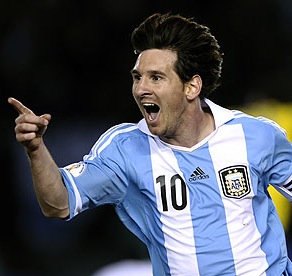FIFA may pursue more pay-TV deals
June 9, 2014
By Colin Mann
 A potential drop in revenue for TV rights sales for the upcoming 2014 Football World Cup Finals could see governing body FIFA pursue further pay TV deals for future events, according to Tim Westcott, Principal Analyst, TV Programming, IHS Technology.
A potential drop in revenue for TV rights sales for the upcoming 2014 Football World Cup Finals could see governing body FIFA pursue further pay TV deals for future events, according to Tim Westcott, Principal Analyst, TV Programming, IHS Technology.
He notes that FIFA’s reported revenue from sales of the 2014 finals amounts to $1.733 billion so far, with Europe accounting for 50 per cent of the total, ahead of Asia and North Africa with 22 per cent. “While there is still one more year of sales for the 2014 finals to be reported, this is slightly less revenue than FIFA generated over the first three years of sales for the 2010 finals,” he advises.
“A lack of growth for TV rights revenues for the finals could mean that FIFA pursues more pay-TV deals for future events – especially if it is unable to generate increases in its contracts in Asia, Latin America and the Middle East,” he adds.
World Cup will mainly air on free TV
Unlike most top-tier football leagues, the World Cup will mainly air on free TV – partly because of the way the rights have been sold by FIFA (most European rights are bought through the EBU) and partly because matches involving national teams and the final match itself are ‘listed’ events ring- fenced for terrestrial TV in many countries. In Europe, EBU members such as the BBC and ITV in the UK, ARD and ZDF in Germany and SVT and TV4 in Sweden will be offering blanket coverage of the event. They will not only be showing matches on their main linear channels, but streaming them online and on apps live and on catch-up.
Pay-TV still in the game in France and Italy
Pay-TV will not be entirely out of the game. France’s TF1 – having decided that the €130 million it paid for rights is too much to recoup from ad sales – has sub-licensed all 64 matches to BeInSport in France. Both TF1 and the Al Jazeera-owned network will simulcast the French national team’s matches and the knockout stages. In Italy, Rai has similarly sold off rights to all matches to satellite platform Sky Italia, while retaining 25 matches.
Most fans watch World Cup matches live
Despite the plethora of alternative platforms and the audience fragmentation caused by on demand and catch-up options, live sport is still capable of attracting massive audiences. According to FIFA’s own research into viewing of the 2010 finals in South Africa, the decisive match between Spain and the Netherlands pulled in an average audience of 531 million viewers, of which 489 million – the vast majority – viewed the event live. In Germany, the 31 million viewers for the national team’s semi-final with Spain on Das Erste was the largest audience ever measured for a single channel. Half the population of the Netherlands viewed the final. The average audience on TV Globo for matches featuring Brazil was over 44 million.
Audiences are naturally affected by the performance of the national team, and this year there are some concerns about adverse kick-off times. The England v Italy match on June 14th will kick off at 11pm UK time and midnight in Italy. Socceroos fans in Australia will have to be awake at 1.30am for matches against the Netherlands and Spain. Japan’s match against Colombia kicks off at 5am local time. However, timings are of course more friendly in most of the Americas (the USA’s first round matches are all on ESPN and Univision and start at 6pm EST) and timings for the knockout phases at weekends and early evenings will not disrupt fans’ sleep patterns in Europe. World Champion Spain’s first match against the Netherlands will kick off at 9pm – perfect for local primetime.
